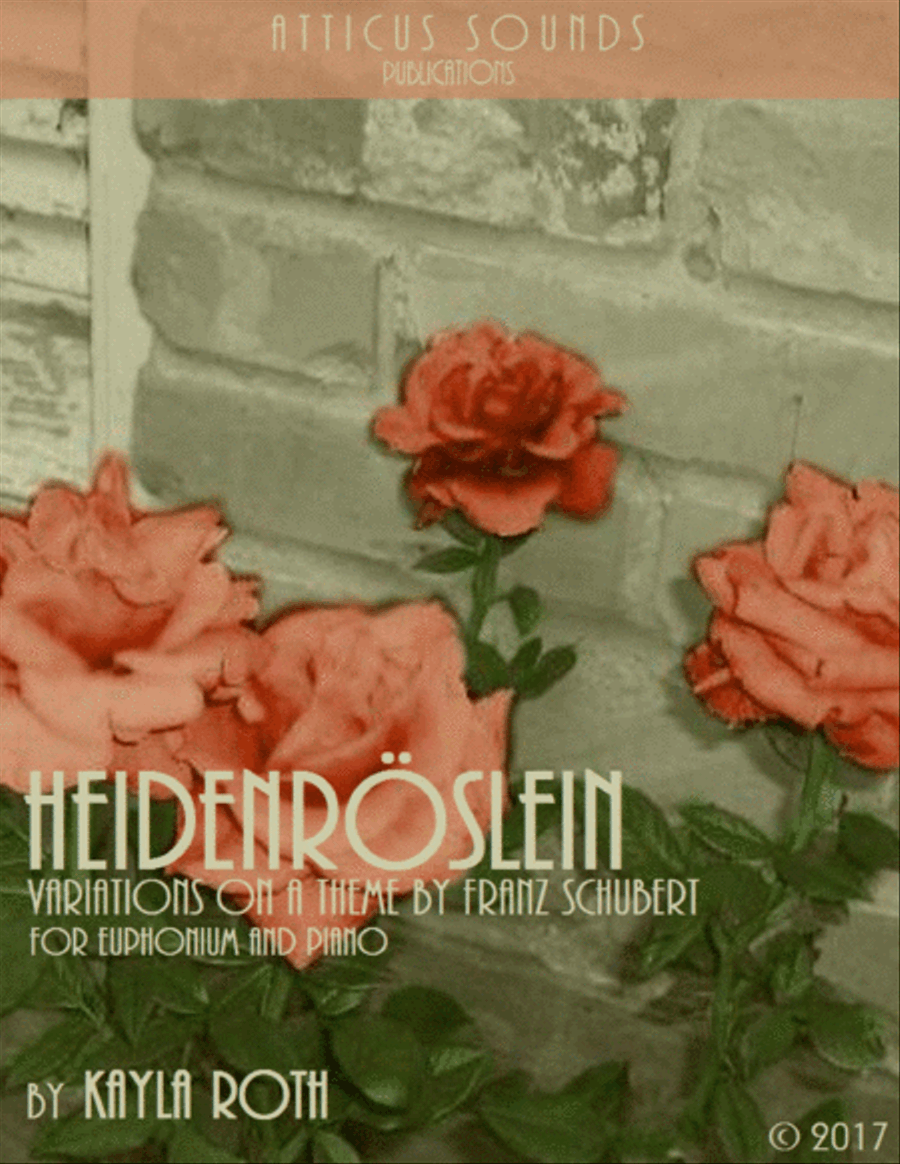Instrumental Duet,Piano Euphonium,Instrumental Duet,Piano,Trombone - Level 3 - Digital Download SKU: A0.927030 Composed by Franz Schubert, Kayla Roth. 20th Century,Baroque,Classical,Contemporary,Romantic Period. Score and parts. 27 pages. Kayla Roth #3373343. Published by Kayla Roth (A0.927030). From the composer's program notes included with this purchase:I have taken Schubert’s famous setting and arranged it in a set of musical homages to other composers. I have also included Schubert’s original theme, transposed down to F, and I would recommend playing it twice in the beginning to give your audience a good idea of it.For most of the pieces, I tried to capture the composer’s overall style; however, there are a few particular pieces that are either quoted or used as the stylistic basis, as follows: Mozart - I based this variation, stylistically, on Piano Concerto No. 21 in C major (K.467), specifically movement two (Andante), as well as some of his earliest childhood piano compositions. Symphony 40 in G minor (K.550) is quoted rhythmically. Strauss, Jr. - For inspiration, I used Du und Du, Op. 367, a waltz that is derived from various parts of his beloved operetta, Die Fledermaus. I quoted rhythms from this, as well as from Frühlingsstimmen, Op. 410. Joplin - I didn’t base this on any particular piece of Joplin’s; I tried to include elements that are common in his rags (a short introduction, arpeggiated diminished seventh chords, chromaticism, syncopation over a boom-chuck). Perhaps the best advice comes from Joplin himself: Don’t play this piece fast. It is never right to play ragtime fast. Porter - I had to include an offering from the Great American Songbook! Frank Sinatra recorded several of Porter’s well-known tunes in the 1940s, such as Easy To Love, Night and Day, and I Love You; his renditions of these songs are heavy on the schmaltz and sentimentality, which is exactly what I was trying to achieve in this variation.Bach - The minor variation! I had Fugue in G minor, BWV 578 (Little Fugue) in mind when writing this.der Jodelkönig - As Heidenröslein is a strophic, folk-songesque German piece, I thought it fitting to end the variations with an imitation of traditional Alpine yodeling. It is named in honor of Franzl Lang, the Yodelking.
